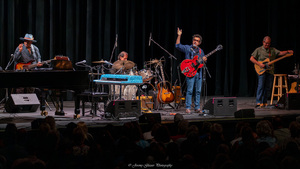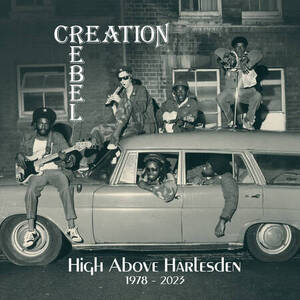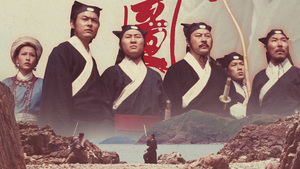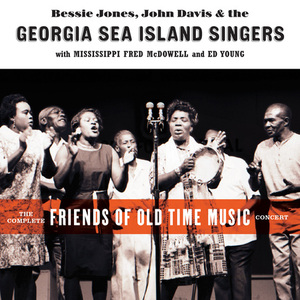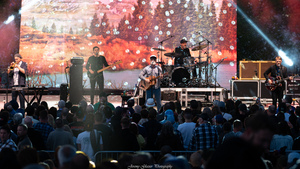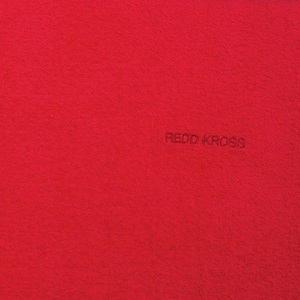Deconstructing Oscar
John P. Wasser
“oscar”
To understand Oscar’s allure, all you need to do is read his body language. Look at his poise, his perfect posture mixed with self-assurance and calm sense of purpose. He stands stoic and aloof, his face expressionless and his hands clasped securely across his trunk. He is an image of detached confidence, the distinguished and world-weary icon who knows his own worth and basks quietly in the daily devotion of his admirers. Next to his elegant resolve, Emmy, with her arms stretched out in youthful ambition, looks like an over-eager naïf, and Grammy looks, well, lame.
No doubt about it: Oscar believes he is the king of all awards. And, of course, he is right. We love him like no other figurine. Unbelievable numbers (Eight hundred million? Was Steve Martin exaggerating?) watch him sparkle on their screens, and he always cracks the front page. All of which is really rather strange, because in purely pragmatic terms, the Academy Awards ceremony is simply an occasion for the richest, most powerful people in Hollywood to pat each other – along with some techie schlubs – on the back. Yet we remain captivated. It’s as if the entire high school packs the auditorium and tunes in on closed circuit to watch the football team pick the cutest cheerleader.
There’s a common explanation of Oscar’s appeal: we like watching the popular and beautiful people celebrating their popularity and beauty. We love the glitter and the glamour of Hollywood entertainment; we love to lose ourselves in celluloid fantasies of beauty and heroism. And the Academy Awards ceremony is the event where the boundary between fantasy and real life collapses. Onscreen and real-world lives become intertwined and inseparable. It is a moment when Hollywood supposedly unveils itself, but as the curtain lifts•Surprise! The air above the red carpet fills with porcelain-smooth cheeks and rugged perfectly cleft chins, and Oscar revels in the ultimate celebration of Hollywood: the “real” Hollywood shown to be just as glamorous and fantastic as the world of the screen. The true face of Hollywood is the same as the fantasy face; it•s all as amazing as we had hoped and dreamed. In this view, Oscar captivates us because it represents the most pure, undiluted, yet surprisingly tangible, Hollywood escapist vision: a fantasy world made, for an instant, absolutely real.
But this discussion of Oscar’s appeal doesn’t really explain his prominence over all those other awards shows. All these events function essentially in the same way: they all serve to draw celebrities from the rarified realm of their respective media, walk them down a carpet, sit them in an auditorium, and celebrate their glamour on stage. The celebrities smile, wave, exhibit their smiles and curves, and in general reveal themselves in all their splendor. So what’s different about Oscar? In keeping with the dominant theme of the evening, the answer lies in the envelope.
Like the most confident and dashing of men, Oscar reveals nothing until the last minute. He wears the ultimate poker face, saving all his glory for that final moment when one candidate is chosen, a single winner is announced, and the victor ascends to the stage to claim the prize. These are the moments that drive the drama of the Oscars, but of course, these are also the moments of drama in any awards show. Oscar, however, distinguishes himself with the air of authenticity. No other entertainment award carries such weight or such certainty: after the name is announced, all other candidates fade to footnotes, and he who wins Oscar stands as an image of the single, undisputed champion of the moment.
Oscar alone has the power to offer this thrill: the thrill not only of victory but of certainty and significance. All other awards shows are plagued by either a legion of similar ceremonies or a sea of meaningless awards. The world of television, already decidedly less glamorous than the world of film, gets skewered and segmented into no less than four major awards ceremonies (Emmys, ACE, TV Guide, People’s Choice). Although Emmy is still the most prestigious, the multiple contenders only serve to fracture any stable notion of a single champion. Meanwhile, the Grammys have devolved into an exercise in perseverance, something akin to shopping at a flea-market: you might find something of value, but you’ve got to sort through piles of meaningless crap to get there. (On a related note: will someone please tell me the difference between Album of the Year and Record of the Year?) Of course, the Country Music Awards and the MTV Music Awards contribute to an image of a fractured and fragmented music world.
By comparison, Oscar is restrained, refined and distinguished. Although sometimes marred by over-production and schmaltzy acceptance speeches, he maintains poise and grace. He only gives out a handful of awards (his 27 seem downright stingy compared to the 100-plus spewed forth by the Grammys) and refuses to do anything so garish as present awards off-camera. Each recipient, no matter how obscure (another question – where the hell do those short-subject features come from? Who watches those? Are they on cable?), gets his or her moment on stage before ascending into the post-Oscar firmament of banquets, parties, most likely a night of great sex with spouse/lover (even, by the looks of it, for lecherous octogenarian Dino DeLaurentiis), and a permanent record in the history books. No other film award can pretend to matter as much as Oscar – his closest competitor, the Golden Globes, is still viewed primarily as a predictor of Oscar. As such, Oscar stands alone as a sign not only of victory, but of unquestioned victory: in other words, a sign of certainty.
In this era of dimpled chads and a surplus of entertainment options, certainty carries a certain appeal. It’s wonderful that modern technology has enabled anybody to record and release an album, or make a home movie, or release a collection of poems; the problem is that most of these products stink. Which is not to say that the act of creativity is not worthwhile, or that these creative expressions don’t perform an invaluable service for their creator and their creator’s friends. It’s just that nobody has the time to encounter even one tenth of one percent of all the entertainment/media that was produced in America this morning. We need someone to tell us what’s meaningful, what’s worth seeing, what is an essential part of one’s culture. Of course, thousands of sour people get paid thousands of dollars to tell us this sort of thing every day, but critics are always imperfect. I usually like Roger Ebert, but he thought The Cell was one of the best movies of the year.
Oscar, on the other hand, towers above all other cultural gatekeepers. In a booming voice, he identifies single faces, single groups, and ultimately, a single film on which to bestow his incontrovertible praise. He lords over American culture, and proclaims what works of art from the previous year matter, which cultural artifacts best represent who we are at this particular moment.
Oscar holds this power not only because of his long and distinguished history but also by virtue of his medium. In five hundred years, after Liechtenstein has become the world’s single superpower and all automobiles have been modified to run on tofu, film will most likely be America’s single most enduring cultural relic (jazz, Mark Twain, and The Simpsons are, at best, longshot candidates). Over the past century, film has evolved from technological curiosity to dominant artform, with America as the focal point of its development. Yet throughout this evolution, the so-called “film world” has straddled several continents and centers of production, each with its own legacy and pantheon of heroes: Hollywood, Paris, Hong Kong, and Bombay existed, for the most part, as estranged cousins, begrudgingly linked by details of ancestry. But today, things seem to be changing; the film world seems to be slowly marching towards a global film culture.
This year, Oscar, always keen to stay on top of the pack, seemed to be not only announcing the coming of this global film culture but also his intention to lord over this dominion as well. From the opening moments of the show – the computer-animated trip through space to arrive at planet Earth – Oscar attempted to show that the entire world was subject to his powers. His first award went to Crouching Tiger, Hidden Dragon’s art director, whose lack of English seemed surprisingly at home this year. The focus, for the most part, was on the Oscars as an international event; Oscar spread his wealth through virtually every inhabited continent on the globe. Puerto Rican Benicio Del Toro won Best Supporting Actor. Australian Russell Crowe won Best Actor. Arthur C. Clarke presented from Sri Lanka. Bob Dylan, doing his best Vincent Price impersonation, performed from Sydney. England’s Sting, Taiwan’s Coco Lee, and Iceland’s Bjork all overshadowed the drab all-American Randy Newman. Italian Dino DeLaurentiis took home the distinguished Thalberg award, and his thick accent marked him as outsider even while he received the most insider of all awards. Although it did not win Best Picture, Crouching Tiger, Hidden Dragon garnered a significant number of awards; more than any other example, it represents the new global cinema on display. For the past fifty years, Chinese cinema has straddled three nationalities (mainland China, Hong Kong, Taiwan), and Ang Lee himself has bounced back and forth between American and Chinese cinema. CTHD embodies everything Oscar was showcasing this year: he aimed at global inclusiveness and the blurring of national boundaries while at the same time maintaining global dominion. In the end, Oscar decided to remain local. He invited everyone to the party at the same time as he reminded the world that the party was invitation-only.
In retrospect, it•s hard to imagine CTHD upstaging such an overblown, decidedly American product as Gladiator. Ultimately, the idea of an egalitarian ultra-modern global cinema is just another fantasy we like to indulge in, right there beside the fantasies of wealth, fame, and glamour that stroll down the red carpet. As our cultural choices become more global, the wealth of choices threaten to completely overwhelm; furthermore, American dominance is called into question. As we begin to realize that significant film cultures are thriving in other parts of the world, their very existence threatens the sense of security that Oscar has always relied upon. If he were to turn a blind eye to the wealth of choices coming from the entire world, he would risk becoming the grizzled grandfather of the neighborhood, the provincial old man who refuses to eat anything but tuna melts and meatloaf. Instead, this year Oscar showed us his cosmopolitan distinction, and in doing so, tried to keep the fantasy going. He tried to show us that his power remains intact, that he holds sway over the entire world, and his choices remain undisputed.
But, of course, his choices are not undisputed, nor have they ever been. But like all the spun-sugar nothings that float out from La-La land, it’s a nice fantasy to indulge in. It makes the world feel smaller and, ultimately, comprehensible. All this doesn•t bother Oscar; he continues to stand cool and undisturbed, wearing that distinctly Hollywood mask of blissed-out ignorance, lost in security born out of self-delusion. Just look at his face: he•s happy, isn•t he? ◼


